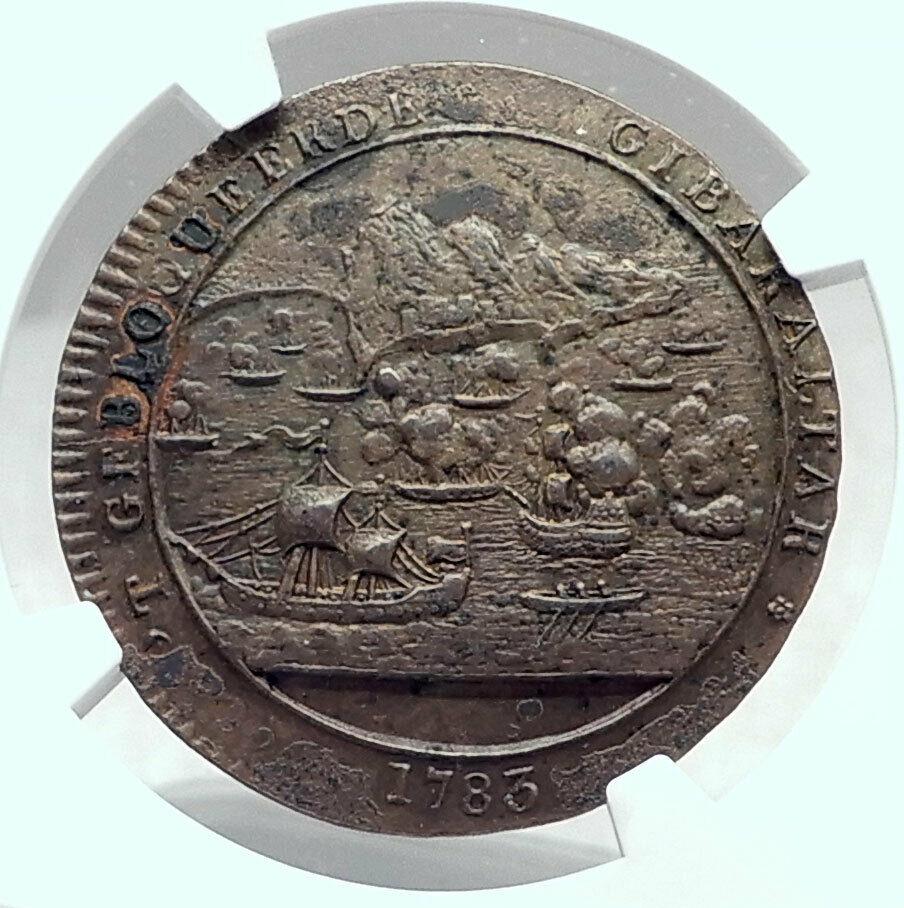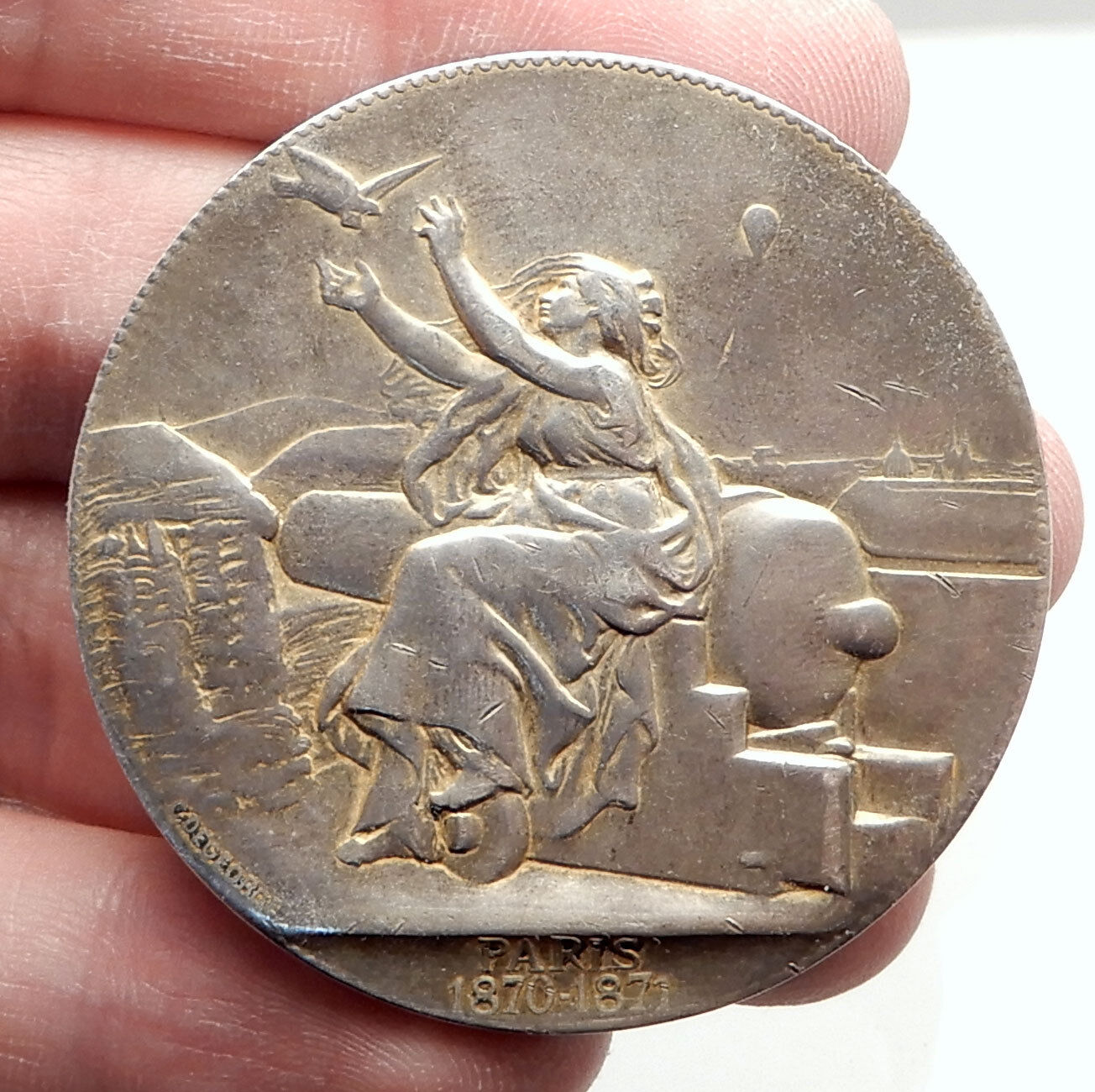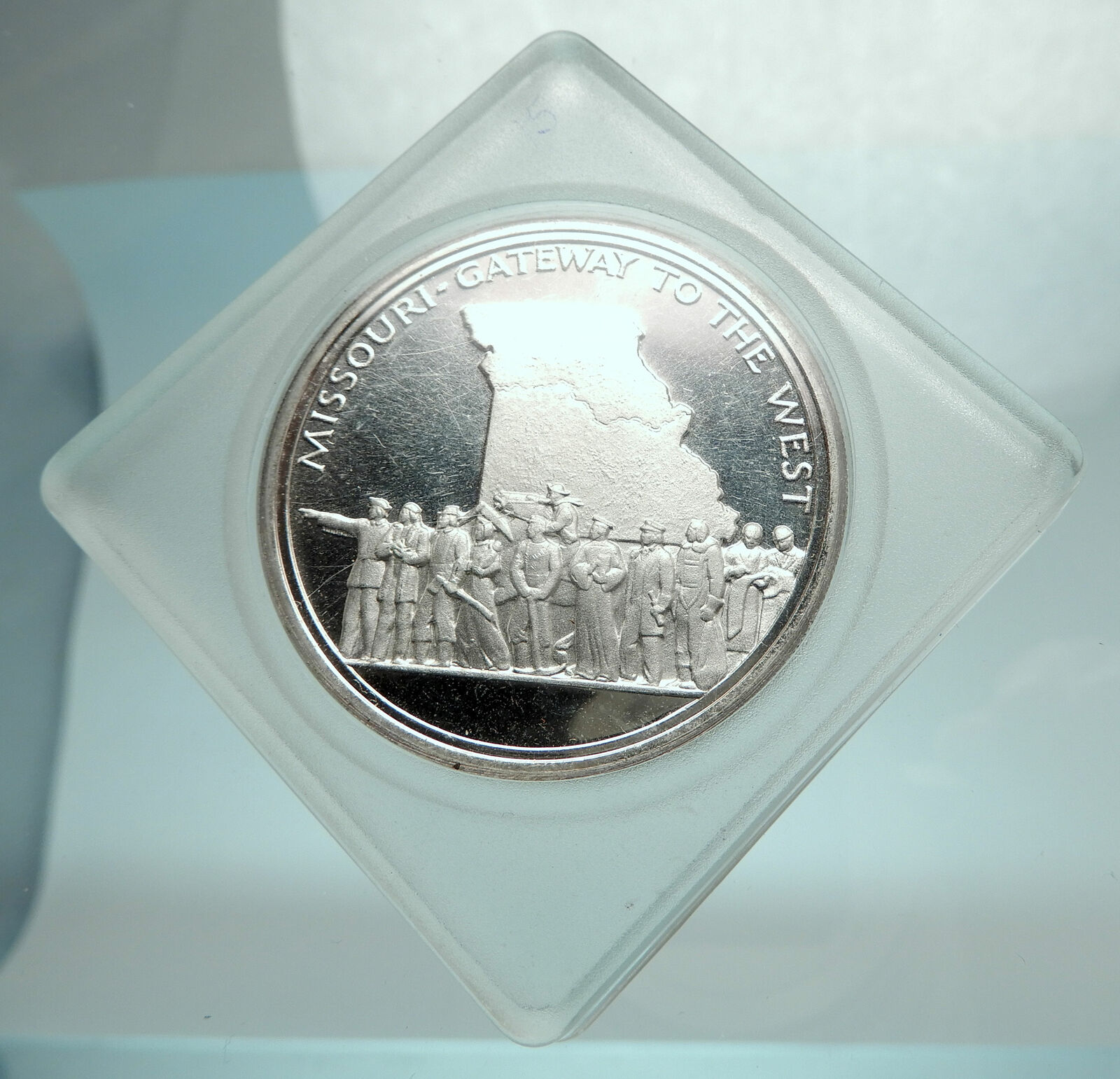|
France
1889 Paris World’s Fair Commemorative Medal
1889 Bronze Medal 33mm (14.68 grams)
REPUBLIQUE FRANCAISE SUFFRAGE UNIVERSE BARRE, Liberty head facing left.
REPUBLIQUE FRANCAISE – EXPOSITION UNIVERSELLE CENTENAIRE DE 1789, Wreath surrounds inscription, star atop.
You are bidding on the exact item pictured, provided with a Certificate of Authenticity and Lifetime Guarantee of Authenticity.
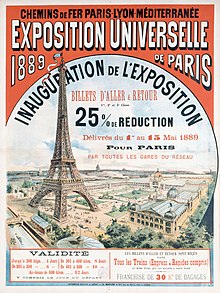 The Exposition Universelle of 1889 was a world’s fair held in Paris, France, from 5 May to 31 October 1889. It was the fourth of eight expositions held in the city between 1855 and 1937. It attracted more than thirty-two million visitors. The most famous structure created for the Exposition, and still remaining, is the Eiffel Tower. The Exposition Universelle of 1889 was a world’s fair held in Paris, France, from 5 May to 31 October 1889. It was the fourth of eight expositions held in the city between 1855 and 1937. It attracted more than thirty-two million visitors. The most famous structure created for the Exposition, and still remaining, is the Eiffel Tower.
The Exposition was held to celebrate the 100th anniversary of the Storming of the Bastille, which marked the beginning of French Revolution, and was also seen as a way to stimulate the economy and pull France out of an economic recession. The Exposition attracted 61,722 official exhibitors, of whom twenty-five thousand were from outside of France.
Admission to the Exposition cost forty centimes, at a time when the price of an “economy” plate of meat and vegetables in a Paris cafe was ten centimes. Visitors paid an additional price for several of the Exposition’s most popular attractions. Climbing the Eiffel Tower cost five Francs; admission to the popular panoramas, theatres and concerts was one franc. Visitors from the French provinces could buy a ticket which included the train fare and entry into the Exposition. The total cost of Exposition was 41,500,000 francs, while income was 49,500,000 francs. It was the last of the Paris Universal Expositions to make a profit.
The countries that officially participated in the Exposition were Andorra, Argentina, Bolivia, Chile, Costa Rica, the Dominican Republic, Ecuador, the United States, Greece, Guatemala, Haiti, Hawaii, Honduras, India, Japan, Morocco, Mexico, Monaco, Nicaragua, Norway, Paraguay, Persia, Saint-Martin, El Salvador, Serbia, Siam, the South African Republic, Switzerland, Uruguay and Venezuela. The British dominions of New Zealand and Tasmania also took part.
Because of the theme of the Exposition, celebrating the overthrow of the French monarchy, nearly all European countries with monarchies officially boycotted the Exposition. The boycotting nations were Germany, Austria-Hungary, Belgium, Spain, the United Kingdom, Italy, the Netherlands, Portugal, Russia, and Sweden.
Nonetheless, many citizens and companies from those countries participated, and a number of countries had their participation entirely funded by private sponsors. They included Germany and Alsace-Lorraine, Austria-Hungary, Belgium, Brazil, China, Denmark, Egypt, Spain, the United Kingdom and its colonies, Haiti, Italy, Luxembourg, the Netherlands, Peru, Portugal, Romania, Russia, Finland and Sweden.
  France, officially the French Republic (French: République française), is a sovereign state comprising territory in western Europe and several overseas regions and territories. The European part of France, called Metropolitan France, extends from the Mediterranean Sea to the English Channel and the North Sea, and from the Rhine to the Atlantic Ocean. France spans 640,679 square kilometres (247,368 sq mi) and has a total population of 67 million. It is a unitary semi-presidential republic with the capital in Paris, the country’s largest city and main cultural and commercial centre. The Constitution of France establishes the state as secular and democratic, with its sovereignty derived from the people. France, officially the French Republic (French: République française), is a sovereign state comprising territory in western Europe and several overseas regions and territories. The European part of France, called Metropolitan France, extends from the Mediterranean Sea to the English Channel and the North Sea, and from the Rhine to the Atlantic Ocean. France spans 640,679 square kilometres (247,368 sq mi) and has a total population of 67 million. It is a unitary semi-presidential republic with the capital in Paris, the country’s largest city and main cultural and commercial centre. The Constitution of France establishes the state as secular and democratic, with its sovereignty derived from the people.
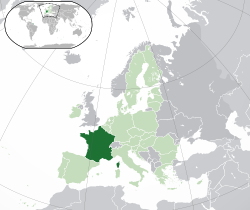
During the Iron Age, what is now Metropolitan France was inhabited by the Gauls, a Celtic people. The Gauls were conquered in 51 BC by the Roman Empire, which held Gaul until 486. The Gallo-Romans faced raids and migration from the Germanic Franks, who dominated the region for hundreds of years, eventually creating the medieval Kingdom of France. France emerged as a major European power in the Late Middle Ages, with its victory in the Hundred Years’ War (1337 to 1453) strengthening French state-building and paving the way for a future centralized absolute monarchy. During the Renaissance, France experienced a vast cultural development and established the beginning of a global colonial empire. The 16th century was dominated by religious civil wars between Catholics and Protestants (Huguenots).
France became Europe’s dominant cultural, political, and military power under Louis XIV. French philosophers played a key role in the Age of Enlightenment during the 18th century. In 1778, France became the first and the main ally of the new United States in the American Revolutionary War. In the late 18th century, the absolute monarchy was overthrown in the French Revolution. Among its legacies was the Declaration of the Rights of Man and of the Citizen, one of the earliest documents on human rights, which expresses the nation’s ideals to this day. France became one of modern history’s earliest republics until Napoleon took power and launched the First French Empire in 1804. Fighting against a complex set of coalitions during the Napoleonic Wars, he dominated European affairs for over a decade and had a long-lasting impact on Western culture. Following the collapse of the Empire, France endured a tumultuous succession of governments: the monarchy was restored, it was replaced in 1830 by a constitutional monarchy, then briefly by a Second Republic, and then by a Second Empire, until a more lasting French Third Republic was established in 1870. By the 1905 law, France adopted a strict form of secularism, called laïcité, which has become an important federative principle in the modern French society.
France reached its territorial height during the 19th and early 20th centuries, when it ultimately possessed the second-largest colonial empire in the world. In World War I, France was one of the main winners as part of the Triple Entente alliance fighting against the Central Powers. France was also one of the Allied Powers in World War II, but came under occupation by the Axis Powers in 1940. Following liberation in 1944, a Fourth Republic was established and later dissolved in the course of the Algerian War. The Fifth Republic, led by Charles de Gaulle, was formed in 1958 and remains to this day. Following World War II, most of the empire became decolonized.
Throughout its long history, France has been a leading global center of culture, making significant contributions to art, science, and philosophy. It hosts Europe’s third-largest number of cultural UNESCO World Heritage Sites (after Italy and Spain) and receives around 83 million foreign tourists annually, the most of any country in the world. France remains a great power with significant cultural, economic, military, and political influence. It is a developed country with the world’s sixth-largest economy by nominal GDP and eight-largest by purchasing power parity. According to Credit Suisse, France is the fourth wealthiest nation in the world in terms of aggregate household wealth. It also possesses the world’s second-largest exclusive economic zone (EEZ), covering 11,035,000 square kilometres (4,261,000 sq mi).
French citizens enjoy a high standard of living, and the country performs well in international rankings of education, health care, life expectancy, civil liberties, and human development. France is a founding member of the United Nations, where it serves as one of the five permanent members of the UN Security Council. It is a member of the Group of 7, North Atlantic Treaty Organization (NATO), Organisation for Economic Co-operation and Development (OECD), the World Trade Organization (WTO), and La Francophonie. France is a founding and leading member state of the European Union (EU).
|




 The Exposition Universelle of 1889 was a world’s fair held in Paris, France, from 5 May to 31 October 1889. It was the fourth of eight expositions held in the city between 1855 and 1937. It attracted more than thirty-two million visitors. The most famous structure created for the Exposition, and still remaining, is the Eiffel Tower.
The Exposition Universelle of 1889 was a world’s fair held in Paris, France, from 5 May to 31 October 1889. It was the fourth of eight expositions held in the city between 1855 and 1937. It attracted more than thirty-two million visitors. The most famous structure created for the Exposition, and still remaining, is the Eiffel Tower.
 France, officially the French Republic (French: République française), is a sovereign state comprising territory in western Europe and several overseas regions and territories. The European part of France, called Metropolitan France, extends from the Mediterranean Sea to the English Channel and the North Sea, and from the Rhine to the Atlantic Ocean. France spans 640,679 square kilometres (247,368 sq mi) and has a total population of 67 million. It is a unitary semi-presidential republic with the capital in Paris, the country’s largest city and main cultural and commercial centre. The Constitution of France establishes the state as secular and democratic, with its sovereignty derived from the people.
France, officially the French Republic (French: République française), is a sovereign state comprising territory in western Europe and several overseas regions and territories. The European part of France, called Metropolitan France, extends from the Mediterranean Sea to the English Channel and the North Sea, and from the Rhine to the Atlantic Ocean. France spans 640,679 square kilometres (247,368 sq mi) and has a total population of 67 million. It is a unitary semi-presidential republic with the capital in Paris, the country’s largest city and main cultural and commercial centre. The Constitution of France establishes the state as secular and democratic, with its sovereignty derived from the people.



